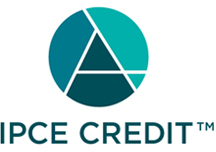
Identifying and Developing a PCO Goal and Tracking it using GAS in BH Setting (S
Self Paced
Expires: April 1, 2027
The training will provide best practices as well as examples of how to develop a SMART person-centered outcome goal from a value and you will learn how to use goal attainment scaling to document and track a person-cen
About this On Demand Training
Identifying and Developing a Person-Centered Outcome Goal and Tracking it Using Goal Attainment Scaling in Behavioral Health Setting (SW Credits)
In this training you will learn how to have a values discussion to identify what matters most to an individual and translate what matters most into a SMART goal that can be measured and tracked overtime. The training will provide best practices as well as examples of how to develop a SMART person-centered outcome goal from a value.
Once you learn how to develop a SMART person-centered outcome goal, you will learn how to use goal attainment scaling to document and track a person-centered outcome goal in a behavioral health setting. Goal attainment scaling is a tool designed to help create goals that are both relevant to the individual and measurable as quality metric. It’s a technique that has been around since the 60’s and has been used heavily in mental health, rehabilitation, disease management and geriatrics.
What You Will Learn
- Guide an individual towards identifying what matters most through a discussion on values.
- Define SMART (Specific, Measurable, Attainable, Relevant, & Time-bound) goals.
- Translate what matters most into a SMART person-centered outcome goal.
- Document an individual’s SMART goal into a standardized scale (goal attainment scaling).
- Use goal attainment scaling to document, track and assess goal progress overtime in a standardized way.
- Identify best practices for implementing the approach with diverse populations.
Who Should Attend
- Health care professional
- Healthcare decision maker
- Consultant
- Health plans
- Wellness organization leverages in federal, state, employer
Faculty
Daniela Lawton, MPH
Sarah Sweeney, MSW, MPH
Caroline Blaum, MD, MS
Continuing Education

In support of improving patient care, the National Committee for Quality Assurance is jointly accredited by the Accreditation Council for Continuing Medical Education (ACCME), the American Nurses Credentialing Center (ANCC), and the Association of Social Work Boards (ASWB) to provide Interprofessional Continuing Education for the healthcare team.
This educational activity is approved for: 1 ASWB contact hours.*
This self-paced training grants 1.0 other Continuing Education Unit (CEU) points for PCMH Certified Content Experts.
* Please note – You must attend the entire program to be eligible for total number of contact hours.
.
DISCLOSURE OF RELEVANT FINANCIAL RELATIONSHIPS
The National Committee for Quality Assurance (NCQA) endorses the Standards of the Accreditation Council for Continuing Medical Education which specify that sponsors of continuing medical education activities and presenters at and planners for these activities disclose any relevant financial relationships either party might have with commercial companies whose products or services are discussed in educational presentations.
For sponsors, relevant financial relationships include large research grants, institutional agreements for joint initiatives, substantial gifts, or other relationships that benefit the institution. For presenters or planning committee members, relevant financial relationships include the receipt of research grants from a commercial company, consultancies, honoraria, travel, or other benefits, or having a self-managed equity interest in a company; or having an immediate family member or partner with such a relationship.
Disclosure of a relationship is not intended to suggest or condone bias in any presentation but is made to provide participants with information that might be of potential importance to their evaluation of a presentation.
Relevant financial relationships exist with the following companies/organizations:
Faculty:
Daniela Lawton, MPH: None, Sarah Sweeney, MSW, MPH: None, Caroline Blaum, MD, MS: None
Additional Planning Committee Members:
Cathy Beckner, MS: None

.jpg)
This training is supported by The John A. Hartford Foundation and The SCAN Foundation.
The John A. Hartford Foundation, based in New York City, is a private, nonpartisan philanthropy dedicated to improving the care of older adults. Established in 1929, the Foundation has three priority areas: creating age-friendly health systems, supporting family caregiving, and improving serious illness and end-of-life care. For more information, visit www.johnahartford.org and follow @johnahartford.
The SCAN Foundation envisions a society where all of us can age well with purpose. We pursue this vision by igniting bold and equitable changes in how older adults age in both home and community. For more information, please visit www.TheSCANFoundation.org.
Event Type
- Self Paced
Policies and Discounts
Includes the printable registration form, substitutions, transfers/credits and cancellation policies as well as other education policies and discount information.
Read PoliciesPublications & Products
View all NCQA publications and products, including HEDIS manuals, Accreditation standards and NCQA newsletters.
View AllCustomer Support
NCQA Customer Support is available Monday – Friday, 8:30 – 5:00 ET M-F.
Call: 888.275.7585
-
Save
Save your favorite pages and receive notifications whenever they’re updated.
You will be prompted to log in to your NCQA account.
Save your favorite pages and receive notifications whenever they’re updated.
You will be prompted to log in to your NCQA account.
-
Email
Share this page with a friend or colleague by Email.
We do not share your information with third parties.
Share this page with a friend or colleague by Email.
We do not share your information with third parties.
-
Print
Print this page.
Print this page.

Have a Team?
Get Virtual Team Training
NCQA can bring virtual or in-person training to you and your team of 20 people or more.
